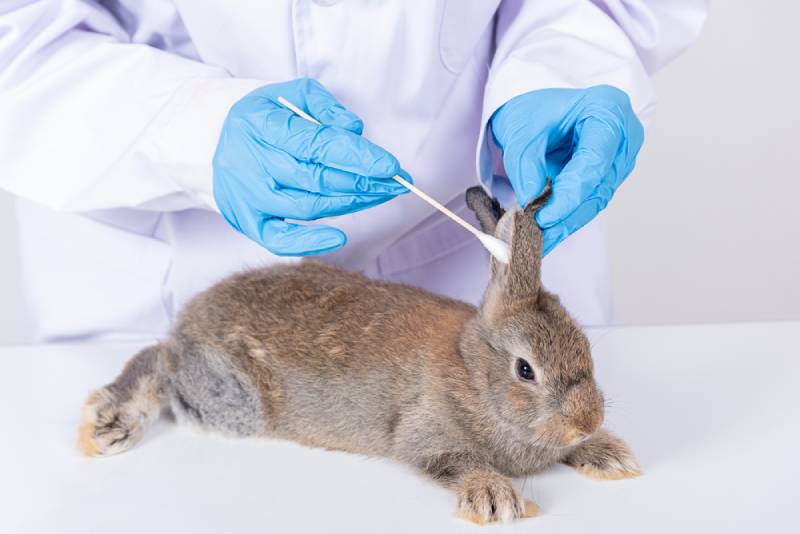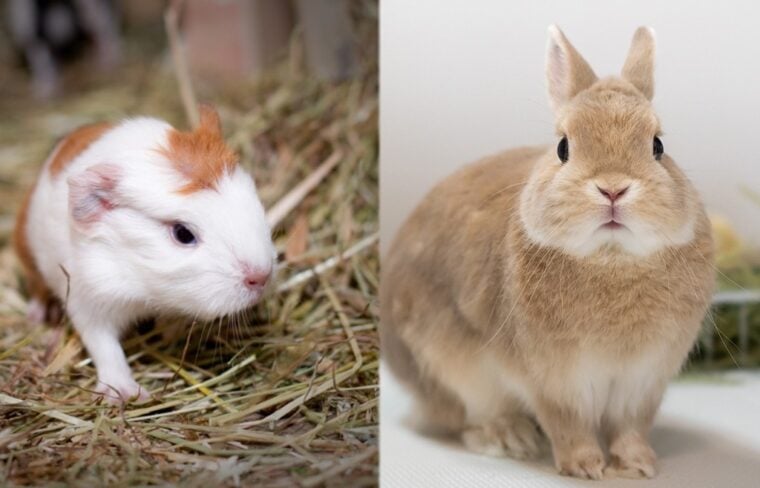
Click to Skip Ahead
Guinea pigs and rabbits are two of the most popular small animals that are commonly kept as pets. They are both cute animals that, with proper socialization and handling, can be quite friendly, outgoing, and interactive with people. In some cases, they may also be interactive with other animals. Is it safe for these two animals to live together, though? Unfortunately, there are multiple reasons that it’s not safe to keep guinea pigs and rabbits together. Here’s what you should know.
The 4 Reasons Guinea Pigs and Rabbits Can’t Live Together
1. They’re Different Species
Rabbits and guinea pigs are just as different from each other as cats and dogs are. They are not the same species, and since rabbits aren’t rodents, they don’t even belong to the same family. Much like cats and dogs, the difference between species can sometimes work out, but sometimes it can also lead to issues with communication, safety, and having needs met.
2. They May Not Get Along
It’s not uncommon for rabbits and guinea pigs that are kept together to fight. Oftentimes, rabbits are the aggressors, and since they are larger than guinea pigs, rabbits can cause physical injury to guinea pigs. Bites, kicks, and scratches can all prove damaging and even fatal to guinea pigs.
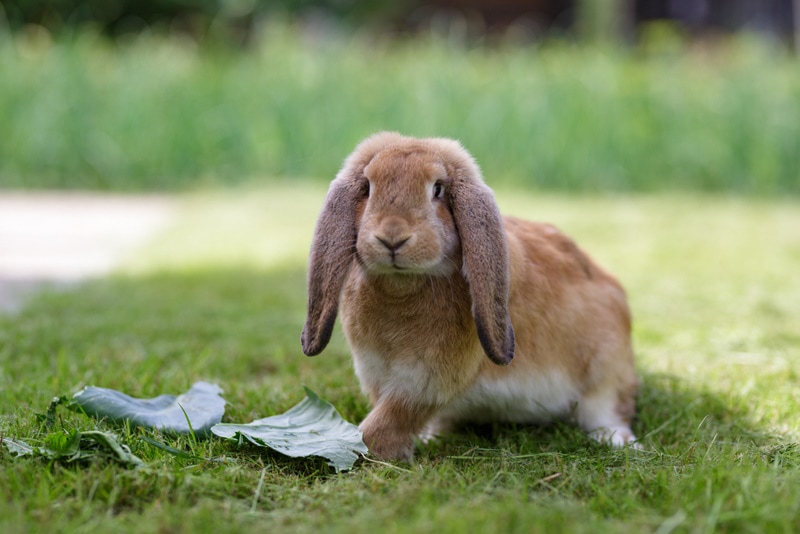
3. They Don’t Have the Same Needs
Although guinea pigs and rabbits both need access to hay at all times, they actually have significantly different dietary needs. Primarily, guinea pigs cannot produce vitamin C within their own bodies, so their diet must be supplemented with vitamin C. Also, guinea pigs can tolerate more fruits in their regular diet than rabbits, although neither should receive fruits or vegetables as the main food in their diet. In addition, rabbits and guinea pigs have different space requirements.
4. They Can Make Each Other Sick
Although they are not the same species, there are some illnesses that can cross species lines. The most common concern with keeping these two animals together is that rabbits can carry the Bordetella bronchiseptica bacteria. This bacterium is harmless to rabbits and is commonly harbored in their upper respiratory tracts. However, it causes severe respiratory infections in guinea pigs and can be deadly. Dogs and cats can also carry this illness, so they should be kept away as well.
What to Do if They Already Live Together
If your guinea pig and rabbit already live together, are well acquainted with each other, and get along perfectly, then it may be okay to keep them together. This should be considered on a case-by-case basis, though. If you plan to keep them together, there are some steps you can take to make the environment safer and happier for both animals.
Feed Them Separately
Since their dietary needs are different, it’s best to separate your rabbit and guinea pig at mealtimes. They can share their hay throughout the day, but their pellets and greens should be offered separately to ensure that the proper animal eats the correct food. Ensure you give your guinea pig a vitamin C supplement in a treat form, rather than adding it to the water supply; rabbits don’t need the supplement, and vitamin C degrades rapidly in water.
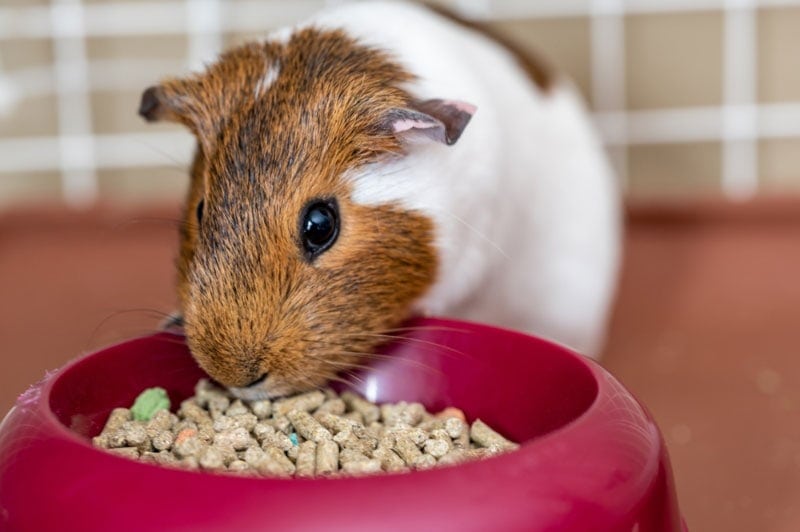
Have the Rabbit Neutered
Male rabbits can be quite territorial. Having your male rabbit neutered will reduce his testosterone levels, in turn reducing his desire to defend his territory or carry out mounting behavior (this can be both stressful and dangerous for a guinea pig). Neutering your male rabbit can reduce these unwanted behaviors but it isn’t a guaranteed fix. If your rabbit has been exhibiting territorial behavior or aggression toward the guinea pig, then they need to be separated permanently. Female rabbits should always be neutered due to their high risk of developing reproductive cancers.
Provide Space and Hiding Places
Many people provide their small animals with enclosures that are far too small to meet their needs, often unknowingly. Keeping two animals together means they will need even more space. Make sure they have plenty of space so they can spend time apart if desired. You also need to provide multiple hiding places for the guinea pig with an entrance big enough for the piggie but too small for the rabbit, so they can feel safe and, if needed, get away from the rabbit.
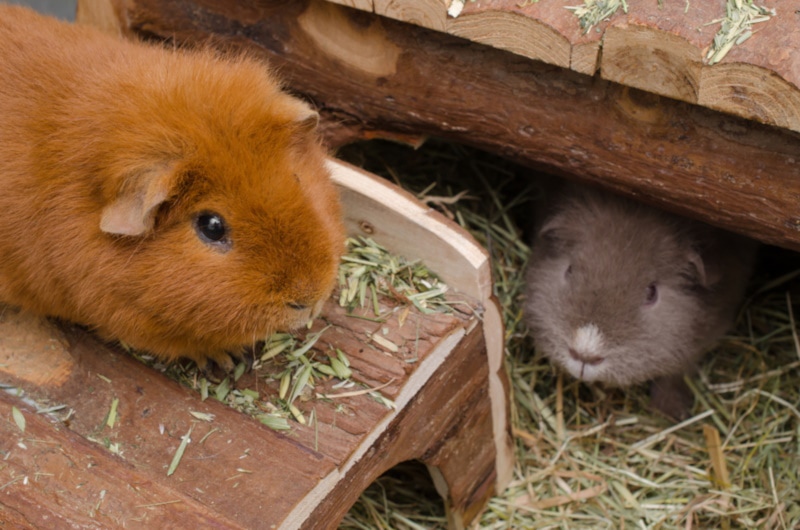
In Conclusion
It’s not recommended to keep guinea pigs and rabbits together for safety and health reasons. Some people may choose to keep them together and may never have a problem, but that’s rare, and the last thing anyone wants is to come home to a bloody cage or a sick guinea pig because these two different animals were kept together. If you’re already keeping a rabbit and guinea pig together, it’s a good idea to reach out to your vet for further guidance on your specific situation.
Featured Image Credit: (L) Kelly L Bailey, Shutterstock | (R) ratesuke, Shutterstock




